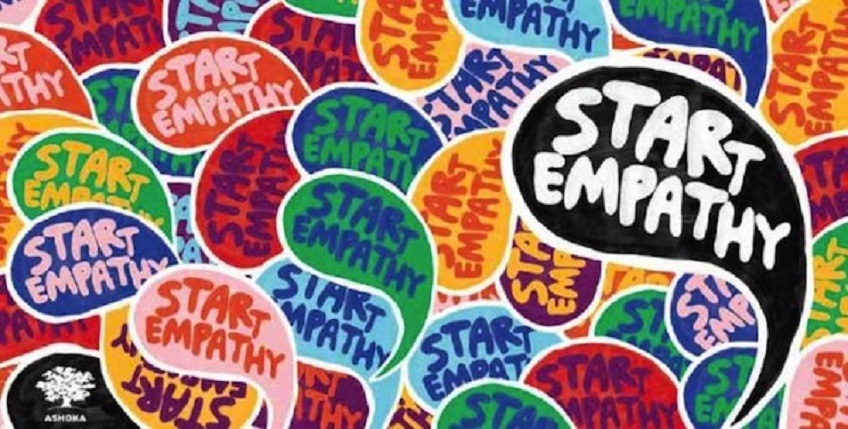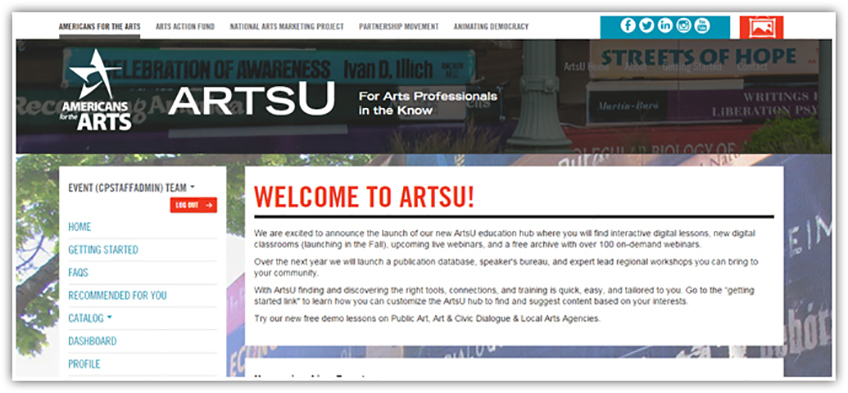
by Aubrey Mellos | Jul 31, 2015 | Blog
A recent article in The New York Times presented a simple yet bold statement, empathy is a choice. The article, prepared by researchers in the field of cognitive science, and viewable here, shared a multitude of studies that suggest that a lack of empathy to the problems of others is not an inherent “shortcoming” or “permanent flaw,” but rather a malleable emotion that can change “depending on what we want to feel.”
Here at CommPartners, developing a culture of empathy is a principle we take very seriously, and the acknowledgement that empathy can be malleable is an important pillar of that culture. This is because we know it is important to maintain a consistently high level of customer service regardless of other pressures or distractions.
Our business philosophy is based around our clients’ success, driven through a collaborative partnership with our team. We understand that true partnerships do not arise automatically, but are only built through understanding our clients’ goals, pressures, and vision of success.
Professional development is an important tool in our efforts to maintain a culture of empathy here in CommPartners. This fall, CommPartners staff will participant is a series of workshops based around the principles of cognitive and positive psychology, that are designed to further strengthen our staff’s ability to consistently provide the highest level of customer service to our clients and partners.

by Aubrey Mellos | Jun 17, 2015 | News
(Columbia, MD – June 15, 2015) CommPartners, a leader in online learning and events, is pleased to announce that it has been selected to provide its learning management system, Elevate LMS to Velvet Chainsaw Consulting (VCC) to support the evolution of its online education programs. A long-time collaborative partner with CommPartners, VCC is the premier consulting agency for face-to-face educational and networking events. CommPartners is thrilled to now also support VCC e-learning programs.
Velvet Chainsaw Consulting Managing Director Dave Lutz stated: “Velvet Chainsaw is extremely selective when it comes to partnerships. We only work with a few progressive companies who have similar vision and values for the industry we serve. We chose CommPartners as our social learning platform because they match these priorities and as important, provide the best learning environment for us to model highly engaging education experiences.”
Rich Finstein, CEO of CommPartners shared: “We are excited to support such an innovative company whose purpose is to help organizations evolve their onsite conferences and educational programming. Elevate embodies a progressive social learning model, integrating content from experts with peer ideas and experiences. This ties in nicely with Velvet Chainsaw’s approach to innovation in how learning occurs and how to increase participant engagement.”
VCC’s Elevate platform is set to launch later this summer.
About CommPartners
CommPartners is a leading provider of online education and event to the association community. The company‘s mission is focused on providing a well-planned and intelligent approach to sharing of knowledge, with a core focus on creating positive user experiences. Over 1,300 associations have selected CommPartners to manage their eLearning programs.
About Velvet Chainsaw
Velvet Chainsaw Consulting (VCC) is the leading choice for conference and trade show organizers interested in growing or transforming their major face-to-face events. VCC provides expert advice for designing premium education and networking experiences that result in increased loyalty and revenue. VCC is comprised of a team of industry experts who are change agents for where conferences and tradeshows need to evolve. Specifically, VCC specializes in: conference improvement, sponsorship growth, education differentiation, speaker improvement, general session design, and strategic facilitation.
To learn more about this new partnership, please contact Eve Finstein, at efinstein@commpartners.com
###

by Aubrey Mellos | Jun 17, 2015 | Blog
There are so many AMS offerings available. Most of us know the companies serving the association community. Names like: Abila, Personify, iMIS, Aptify, Association Anywhere and Protech, to list a few. Why is integration with these systems and others so critical to the success of an association’s learning management system (LMS)? After all, AMS integration done well will go completely unnoticed by the end-user. It is, if you will, the “unsung hero” of learning management systems – and this is why we at CommPartners have worked to ensure that our Learning Platform, Elevate, can be integrated with any AMS. Though the benefits of integration are not necessarily seen, they are very much felt. Here are some of the benefits:
Personalization – Cutting Through the Noise
If a learner is signed in with appropriate credentials to your AMS through your website, they are signed into Elevate. AMS integration allows for seamless movement with the proper access and credentials. In Elevate, this means the user will be greeted by name and is provided designated content, pages, rates, and their history; all keyed on their member record.
Relevancy – Building a Unique Experience
Through integration, specific content is presented to a learner based on their member-role, position, location, etc. Integration also allows an admin to display specific pricing based on the user’s role (ex. member v. non-member, student, faculty, seniors). Automatic authentication also provides for an added level of security and privacy – relevant content can be created to display specifically to a user group, or limited to a specific role or status. Additionally, every user has a home dashboard, which allows him/her to easily track their work within Elevate.
Reporting – Made Easy
Finally, AMS integration provides for ease in reporting. Elevate provides 30+ unique reports admins can run to gather data and receive feedback on member and product activity. This information is available through Elevate’s API to be pulled by the AMS.
If you have questions regarding your specific AMS or how it can integrate with our learning management system, Elevate, please reach out to Eve Finstein at efinstein@commpartners.com.
By: Eve Finstein, Elevate Project Manager

by Aubrey Mellos | Jun 11, 2015 | Blog
“Social learning” is quite the buzzword today, isn’t it? With access to information on literally any topic, and the immediate thoughts and reactions of our friends, family, influencers, and favorite strangers all contained in a device we carry around in our back pocket – it’s a wonder we even need books anymore. (kidding of course, I’m still in the book fan club, (v. e-reader), but that’s for a different piece).
By its name, social learning may seem less important than instructional learning. The word social leads many to think “socialize,” which seems something best saved for Friday happy hour and not business. However, today’s online learning systems and social portals, like Higher Logic’s Connected Communities, are turning this whole notion on its head.
Certainly seeking insight from experts and thought leaders is important, particularly when one is looking to grow his or her knowledge base or understanding around a particular topic. However, in today’s dynamic economy, more and more it’s not what you know or do, but how you do it that can have the most substantial impact on organizational success. And this is an area where social learning can really shine.
For those of us who are not in the cognitive sciences field, it may interest you to know that social learning is a social science theory (and not just an excuse to waste a half-hour on Twitter). Social Learning Theory proposes that learning is a cognitive process that takes place in a social context, it is based upon observation and the information extracted from these observations, in particular, observing behaviors and the consequences of those behaviors.
In the business world, social learning is involved in the development of best practices and new initiatives, innovations or methods. Here, successful plans come to life after looking at what others have done, or are doing, and evaluating the consequences of those schemes – they are rarely, if ever, created in a vacuum. In the world of online learning – which, overall, is mostly populated with instructional learning – adding methods for social learning can add a significant perk for your users by providing a way to embed the facts and figures from instructional learning into the real world.
At CommPartners, we are specifically seeking to meld instructional and social learning through a collaborative with Higher Logic’s Connected Communities. CommPartners’ LMS Platform, Elevate, now allows administrators to create RSS feeds for any products housed within it for display in an association’s Higher Logic platform. This collaboration seeks to facilitate social learning around and about other education pieces by embedding the instructional learning in a place where social learning is already taking place (as opposed to the other way around). In this way, members can engage in social learning and access related e-learning products concurrently. It’s not just discussions, it’s not just expert instruction, it’s both and much more.
Eve Finstein is an Elevate Project Manager with CommPartners. She can be reached at: efinstein@commpartners.com

by Aubrey Mellos | May 26, 2015 | Customer Stories
By name, a learning management system (LMS) is content-driven. It is a site designed to be your members’ and clients’ one-stop shop to access your full array of educational content and collaborative material. Thus, in conceptualizing an LMS, commonly a great deal of time is spent organizing and developing content, while other attributes of the site become more of an afterthought. This can often be the case with the site’s visual concepts and design.
While design plays a more passive role in an LMS, the majority of us have had experiences where a site’s design can cause us to be immediately attracted to, or turned off by, the site upon arriving on the home page. Site design shapes the entire user experience – from whether the user feels welcomed on the site, to the ease of access and navigation. Additionally, in our technology-heavy lives, we have become used to viewing the quality of a website as representative of the credibility and professional-ness of an organization. So while the design is an aspect that literally falls in the background of an LMS, it is also an element that should not be overlooked.
We recently sat down with Kimberly Hedges, Vice President of Web and Technology Strategies with Americans for the Arts (AFTA). AFTA’s Elevate site is soon to launch with a unique and creative design. Admittedly, this is to be expected from an association in the art world, but our conversation with Kimberly revealed that AFTA’s focus in conceptualizing its Elevate site was on items that are broadly applicable to LMS design:
1. Branding is King
Like many associations, AFTA’s design concepts began with its association webpage. “We wanted our materials to look the same across all offerings,” Kimberley explained. Therefore, AFTA’s Elevate page is designed to mirror many of the details from its main website including fonts and color schemes, backgrounds, and menu offerings. In this way, users experience a seamless transition from AFTA’s main website to its Elevate page, and are also able to easily recognize that they are working with an AFTA product.
2. Design Tailored for an LMS
While AFTA’s website served as a blueprint for its Elevate design concept, AFTA also wanted to ensure its design elements worked well in an LMS format, as Kimberley explained, “we wanted to make sure it had a strong relationship to our main website but could still take full advantage of all the LMS functionality we’d have with Elevate.” Here, AFTA drew inspiration from CommPartners’ Elevate site for some cues on building a structure specific to an LMS. AFTA also sought to place itself in the mindset of a user coming to the site, and thought about what design elements could make a user’s experience easier and more pleasant. For example, AFTA developed ‘user-friendly icons’ based around content type and subject, which it created to visually stand out with bright colors. These help users easily navigate from page to page and quickly find relevant learning content.
3. Convey a Message/Make a Statement
 As Kimberly explained, AFTA sought to use its Elevate site to highlight its role as part of the creative industry in communicating the value of art. In a unique approach, AFTA accomplished this by incorporating public art recognized by its Public Art Network Year in Review Project into its main website and Elevate platform as the background images for its webpages. For interested individuals, the background images are linked to more information about each piece of art. Appropriately, for the background of its Elevate site, AFTA chose a public mural entitled “The Knowledge” installed on the campus of Portland State University.
As Kimberly explained, AFTA sought to use its Elevate site to highlight its role as part of the creative industry in communicating the value of art. In a unique approach, AFTA accomplished this by incorporating public art recognized by its Public Art Network Year in Review Project into its main website and Elevate platform as the background images for its webpages. For interested individuals, the background images are linked to more information about each piece of art. Appropriately, for the background of its Elevate site, AFTA chose a public mural entitled “The Knowledge” installed on the campus of Portland State University.
4. Keep it Professional
While AFTA incorporated bold colors and artistic design into its Elevate page, it was also important to not lose sight of the fact that the Elevate site is a business tool. As such, in addition to conceptualizing a creative design, AFTA also stressed the importance of organization and flow as the building blocks for the site. In this way, AFTA’s Elevate site is able to portray life and art, while at the same time remaining an effective tool for its members to collaborate and learn.
If you’d like more information on LMS design or would like a consultation about designing your Elevate LMS platform site, please reach out to us at efinstein@commpartners.com.






 As Kimberly explained, AFTA sought to use its Elevate site to highlight its role as part of the creative industry in communicating the value of art. In a unique approach, AFTA accomplished this by incorporating public art recognized by its
As Kimberly explained, AFTA sought to use its Elevate site to highlight its role as part of the creative industry in communicating the value of art. In a unique approach, AFTA accomplished this by incorporating public art recognized by its 